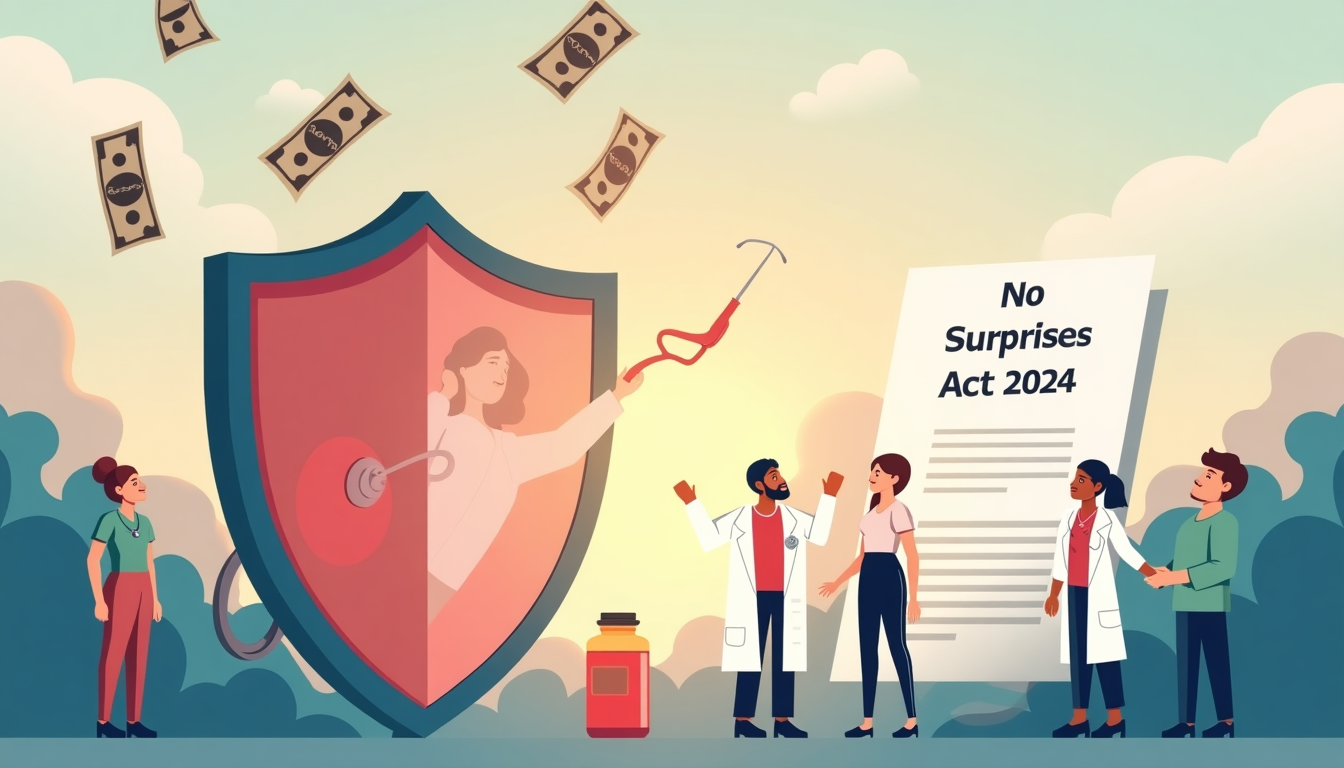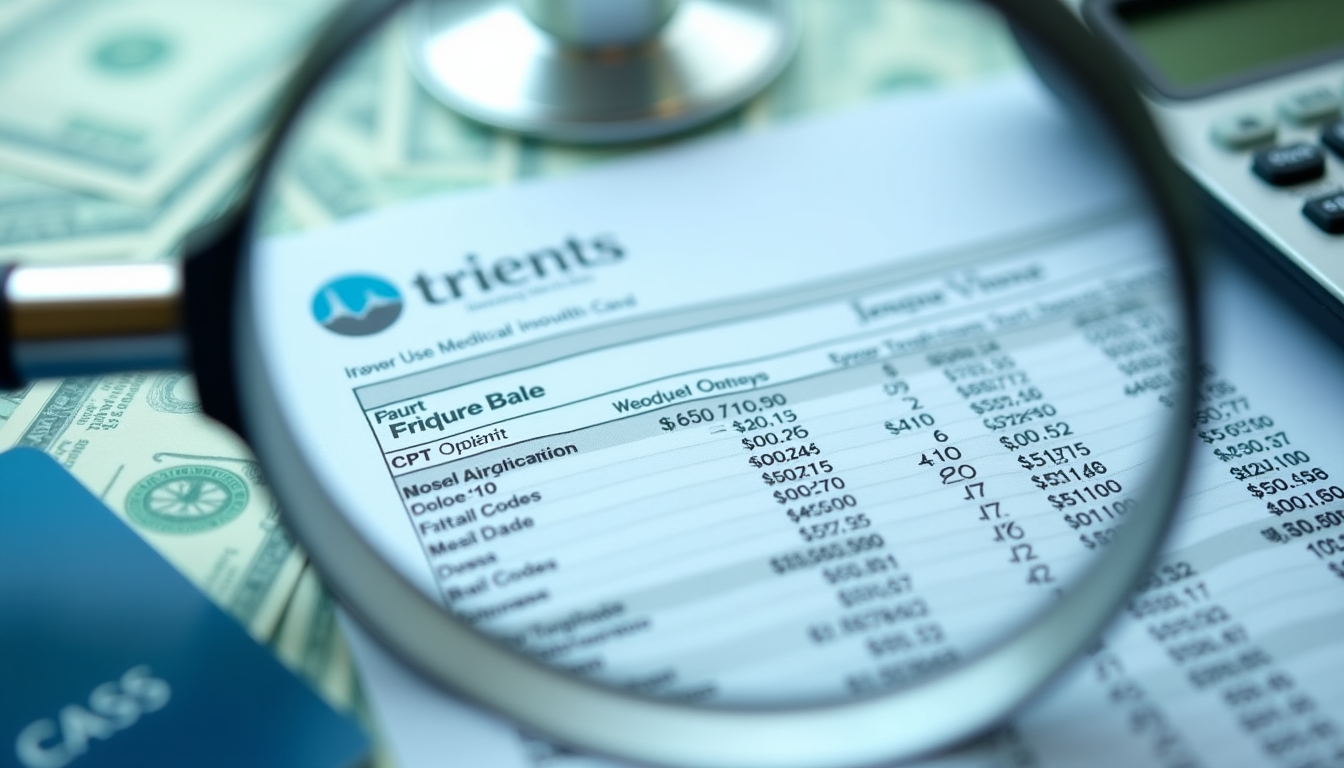Navigating Medical Bills: How the No Surprises Act Protects Patients in 2024
"Financial fear should never stand between someone and the mental or physical healthcare they deserve."
– Sarah Johnson, Certified Patient Advocate
America’s Medical Debt Crisis: A $220 Billion Problem
Picture this: You visit the ER during a panic attack, only to receive a $3,000 bill from an out-of-network psychiatrist. Or you plan surgery for chronic pain at an in-network hospital, then get charged $1,800 for an "out-of-network" anesthesiologist.
These aren’t rare scenarios—they’re daily realities. While the 2020 No Surprises Act (NSA) helped reduce surprise billing, 27% of insured patients still face unexpected out-of-network charges [1], and 14 million adults carry medical debts exceeding $1,000 [2]. As a healthcare advocate, I’ve seen how financial stress worsens health outcomes. One patient with severe OCD shared, "My anxiety about bills became worse than my original symptoms."
The good news? Recent updates to the NSA offer stronger protections. Let’s break down what you need to know.
Your 2024 Rights Under the No Surprises Act
Covered Services
- Emergency care at any hospital (including air ambulances)
- Non-emergency care at in-network facilities
- Uninsured/self-pay services exceeding Good Faith Estimates by $400+ [3]
Key 2024 Updates
-
Enhanced Price Transparency
Providers must disclose if support staff (e.g., surgical assistants) are out-of-network
Pro Tip: Ask before procedures: "Will everyone involved be in-network? If not, what fees should I expect?" -
Faster Dispute Resolution
-
Mental Health Cost Clarity
Therapists must provide upfront estimates for:- Psychiatric evaluations
- TMS/ketamine therapies
- Intensive outpatient programs [5]
Real-World Scenarios: Using Your NSA Protections
Case 1: Emergency Room Surprise
Maria’s Story: After a mental health crisis, Maria received a $2,400 bill from an out-of-network psychiatrist at an in-network ER.
2024 Solution:
- Contact your insurer: "This emergency care qualifies under NSA Section 2799B-1. Please adjust to in-network rates."
- Reference hospital posters (now required in all facilities [4])
- File a dispute at CMS.gov/nosurprises if unresolved
Outcome: Maria paid only her $300 copay.
Case 2: Hidden Surgery Fees
James’ Story: His in-network surgeon used an out-of-network assistant during spinal surgery.
2024 Protection:
- Hospitals must provide itemized cost estimates showing each provider’s network status [4]
- Dispute undisclosed fees exceeding estimates by $400+
Sample Script:
"Per NSA Section 2799B-3, I dispute this $1,200 charge. Attached is your facility’s estimate from [Date]."
Case 3: Air Ambulance Bills
Despite NSA protections, air transport costs remain challenging:
Action Steps:
- Check state laws: 18 states have stricter air ambulance rules [4]
- Request QPA details: Insurers must explain payment calculations [6]
- Contact your state Insurance Commissioner if denied
Current Challenges and Patient Solutions
| Issue | At-Risk Groups | Action Steps |
|---|---|---|
| Arbitration bias | Insured patients | Negotiate before arbitration |
| Rural care gaps | Countryside residents | Use NSA telehealth protections [4] |
| Billing delays | All patients | Request written cost estimates |
Important Note: While providers win 77% of arbitrations [4], early negotiation often reduces costs by 30-50% [4].
5 Steps to Protect Yourself in 2024
-
Prepare Before Care
- Request Good Faith Estimates: "Please email all estimated fees within 3 business days."
- Verify network status through your insurer’s portal
-
During Treatment
- Post this note if hospitalized: "Only consent to in-network care per NSA 2024"
-
After Receiving Bills
- Submit disputes within 120 days through:
- Your insurer’s appeals process
- CMS.gov/nosurprises
- State Consumer Protection Office
- Submit disputes within 120 days through:
-
Use Technology
- Try CMS’s NSA Price Comparison Tool [6]
-
Know State Laws
- Example: New York bans more balance billing types than federal law [4]
When to Seek Help
Consider professional advocacy if:
- Bills exceed $1,000
- You receive threats from collections
- Insurers deny valid NSA claims
Success Story: A patient facing a $12,000 air ambulance bill used NSA protections and state laws to reduce their cost to $478.
Shaping the Future of Fair Billing
The NSA prevents 1.4 million surprise bills monthly [4], but systemic changes are still needed. You can help by:
- Sharing experiences at HHS.gov/nosurprises-comments
- Supporting the AEOB Act (HR 6545) for real-time cost breakdowns
- Practicing persistent self-advocacy – your health deserves protection
References
[1] Kaiser Family Foundation. (2023). Surprise Medical Bills: New Protections for Patients. kff.org
[2] Consumer Financial Protection Bureau. (2023). Medical Debt Burden in the United States. consumerfinance.gov
[3] Centers for Medicare & Medicaid Services. (2023). No Surprises Act Implementation Guide. cms.gov
[4] Department of Health and Human Services. (2024). No Surprises Act Enforcement Report. hhs.gov
[5] Agency for Healthcare Research and Quality. (2023). Mental Health Parity Updates. ahrq.gov
[6] Centers for Medicare & Medicaid Services. (2024). NSA Price Transparency Tools. cms.gov




